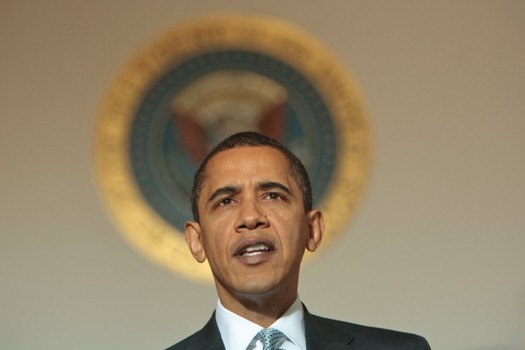I spent last week immersed in the views of professionals working to advance energy efficiency resource intelligence. I shall spare you more details — I realize there’s a limit to the wonkery even Grist’s audience can tolerate — but I do want highlight what strikes me as a key takeaway.
A few facts to set the stage:
- Resource intelligence is profitable. Study after study (after study) shows that homes and businesses have available a range of investments, technologies, and practices that cut energy use and pay handsome returns. (See, for the latest, this three-year study of efficiency in buildings.)
- Resource intelligence isn’t happening on its own. This is something speaker after speaker at the conference returned to, with attitudes ranging from frustration to simple bemusement. Despite the aforementioned studies, people aren’t taking advantage of the opportunities at anything close to the available scale. The low-hanging fruit stubbornly remains unplucked.
- Resource intelligence is central to the climate/energy challenge. The International Energy Agency describes a scenario for achieving 450 ppm (the widely shared though likely inadequate target for atmospheric concentrations of CO2). Of the emission reductions they project, energy efficiency is responsible for 54%. More than half our efforts to tackle climate change will happen through more intelligent use of energy.
Here’s the point, somewhat provocatively put:
Nos. 1 and 2 constitute a challenge to our naive economic worldview; No. 3 indicates that tackling climate change will mean disenthralling ourselves of that worldview.
Market economics (of the familiar neoliberal variety) has shaped public attitudes far beyond academia. Many propositions that Americans now take for granted spring from it: taxes are bad, regulation is burdensome, markets can solve virtually any problem, the self-interested rational economic actor is not only a metaphysical fact of life, the atomic unit of the economy, but a moral model. The assumption that addressing climate change (or indeed addressing any environmental problem) will be costly is a subspecies of the belief that markets always allocate capital efficiently, and thus that government efforts to rechannel capital are by definition less efficient and more costly than the status quo. (Yes, academic economists are cognizant of market failures, but what’s at issue here is not academic economics but the broader sociopolitical cosmology. What are the assumptions, the things that “everyone knows” to which market failures are seen as marginal exceptions?)
That’s why when you hear an establishment journalist interview DOE head Steven Chu about climate change, virtually every question is about cost — won’t that cost a lot? What’s that cost? Isn’t that costly? After all, if these things were cheap or even cost-effective, the private sector would have done them already, right?
When smart energy advocates claim that shifts in policy can produce large dividends, they’re inevitably dismissed as promising “something for nothing.” Dig into that phrase a little and at its root you find faith: the faith that if “something” were available, rational market actors would already have acted to obtain it. The claim that government can make (or induce) investments that offer substantial returns simply doesn’t compute.
But energy efficiency refutes that view. Studies show — at this point beyond reasonable doubt — that there is money lying on the ground that nobody’s picking up. Lots and lots of money. This isn’t some marginal phenomenon. We’re talking about “cost-negative” investments that can in the next few decades increase the aggregate efficiency of the economy by 20, 30, 50 percent. That’s enormous. That’s a central fact of our economic life, not a peculiar marginal phenomenon. People are behaving irrationally on a massive, massive scale.
In Anglo economic circles it’s fashionable to think that the “market-based” solution of raising the price of carbon will, like a push on Archimedes’ lever, solve the problem. But speaker after speaker after speaker at the conference — from governments, NGOs, and large businesses — explicitly noted that a price on carbon, particularly of the size expected in the first years of a trading program, is not enough. It shifts incentives at the margins, but nothing like what’s necessary. People must be spurred, nudged, and directly incentivized to make these investments. You need strong, consistent, and clear regulations — “standards and targets” was the drumbeat. In some cases it’s about removing or reforming ineffective existing regulations.
There’s need for public-private partnerships to restructure markets or create new ones. There’s need for direct government investment, massive public education, moral suasion, sharing of best practices. The problem of efficiency is not one problem with one solution but thousands, even millions of granular problems requiring painstaking work to address.
The point is, collective action is necessary. Market economics leads to a strangely passive view of public life, wherein our collective welfare is entrusted to markets, to millions of allegedly rational individuals. Our welfare is allowed/hoped to happen. But here we have a problem — the deterioration of the atmosphere — that presents us with great urgency, and a solution — resource intelligence — that requires our active intervention.
We know what we want; we know how to get it. We do not have to sit back, waiting anxiously, for the market to provide it on its own.



